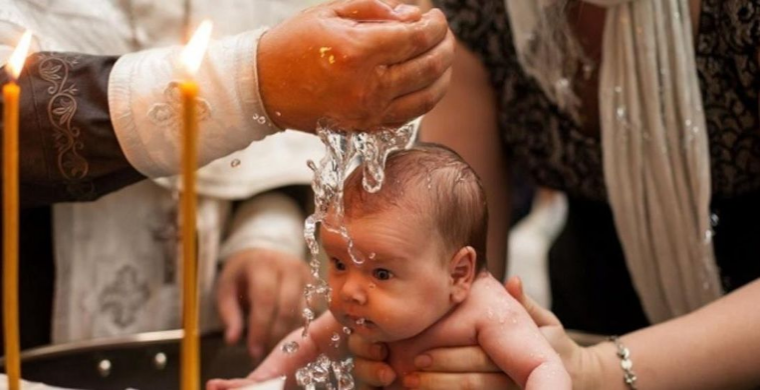The Meaning and Purpose of Infant Baptism
By Chuck Collins
https://www.anglicanism.info/blog
May 28, 2022
The charitable language of Thomas Cranmer's baptism service is a problem. Some hear the seeing-now-that-this-child-is-regenerate language in the service and assume that Anglicans hold to "baptismal regeneration." This has become the teaching de jour in most Anglican churches today: the Roman Catholic understanding that everyone, whether or not faith is present and operative, is automatically "born again" in the sacrament of Holy Baptism. Archbishop George Carey reminds us that "the Reformers did not challenge the assumption that God uses church rites and ministry, this they held in common with Catholics - but they did question the notion that the grace of God was conveyed automatically" (A Tale of Two Churches).
Historians tell us that Cranmer himself was unclear about the connection between baptism and justification, and perhaps he was in the process of thinking this through when he died (as he did earlier with the Eucharist in 1550, The True and Catholic Doctrine). What is clear in Cranmer's writings is that he saw everything through the glasses of "justification by grace through faith alone" (sola fide), and that he understood that, in baptism, the Holy Spirit is given afresh to those who are predestined for everlasting life (Article 17).
The real question in our understanding of baptism is whether the baptism service wording stands on its own (borrowed from the Medieval Catholic liturgy and understanding), or whether the Thirty-nine Articles and the Homilies must be considered as commentaries to give us a full understanding. A fair look at all the historic formularies will help us understand Anglican sacramental theology.
For Cranmer, the way to the blessing of the sacraments (two sacraments only: baptism and holy communion) is by accessing the grace of the sacrament rightly - by faith - "they that receive baptism rightly" (see Article 27 "Of Baptism").
Whenever he is speaking of someone's faith, Cranmer charitably assumes that they are believers. He assumes that an infant or child who is brought for baptism is a believer, just like he assumes they are believers who die and are buried from the church. Everyone knows that this isn't true of everyone whose funeral is from the church, and it's obvious that all baptized children do not grow up to believe. But who is to decide in each of these cases but God alone? In the case of baptism, who would otherwise then decide when someone is old enough for baptism - or mature enough - or faithful enough? Are adults who are baptized knowledgeable enough or faithful enough? Should this be the minister's discretion to determine what only God knows? The Anglican baptism service uses charitable assumption in its baptism language, and this, along side of the Articles of Religion, declares the importance of a faithful response to the grace that God gives us in the sacraments for it to effect what it symbolizes. Bishop J. C. Ryle said, "The person baptized is pronounced regenerate upon the broad principle of the Prayer-book, that, in the Church-services people are charitably supposed to be what they profess to be" (Knots Untied).
Anglicans have historically believed that the sacrament of Holy Baptism is far more than a mere dedication (our actions towards God alone); they are "certain sure witnesses, and effectual signs of grace"(Article 25). And we equally reject the notion of baptismal regeneration - God acting towards us independent of faith. John Stott concludes his remarks on the sacrament of baptism by saying, "The new birth is not identical with baptism. To identify them is a mistake often made by Catholics (both Anglican and Roman) who imagine that because they have been baptized, they must have been born again" (Evangelical Truth, p. 90). The famous George Gorham (Henry Phillpotts) trial of 1850 determined that baptism "is a sacrament generally necessary to salvation, but that the grace of regeneration does not so necessarily accompany the act of baptism that regeneration invariably takes place in baptism; that the grace may be granted before, in, or after baptism."
The Anglican via media recognizes God's real gift in the sacrament, AND the necessity of justification by grace through faith alone. Our formularies affirm that God truly extends his regenerative grace as is prayed for by the parents and congregation in Holy Baptism, but until and unless that grace is receive by faith, it remains a gift to be opened in the heart and affections of the baptized person - the manifold promises of new life are for those who "receive baptism rightly" (Article 27).














